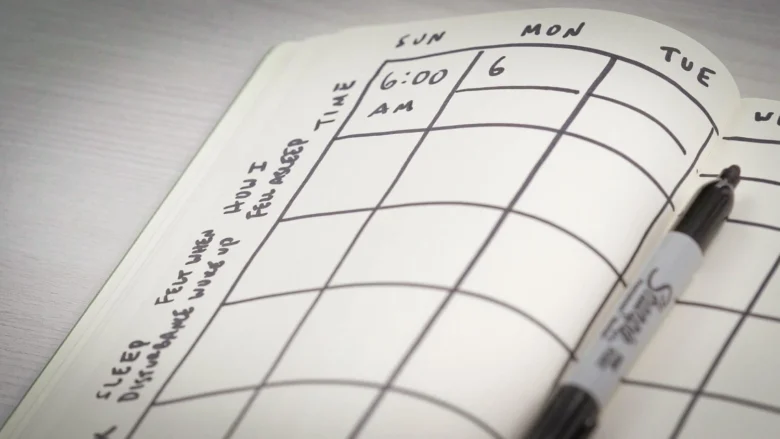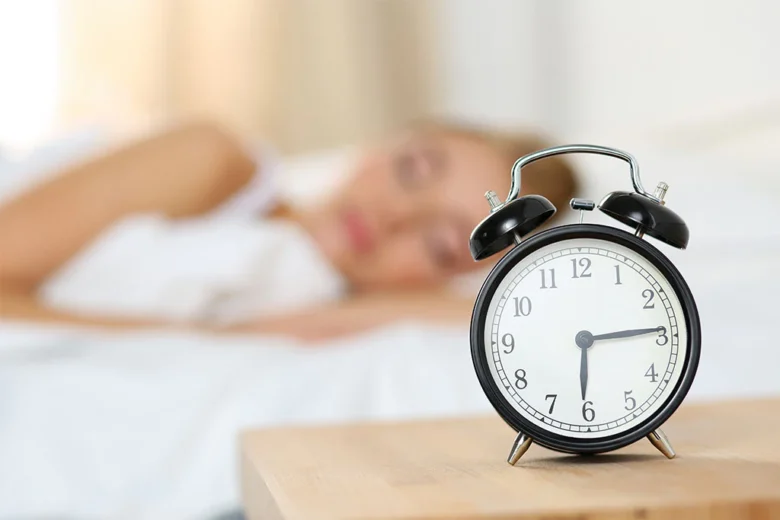Sleep eludes many people, leaving them tossing and turning all night in helpless frustration. Experts have identified factors that can cause chronic insomnia. If these aspects are addressed, sleep can be restored. Collectively, this is known as sleep hygiene.
Sleep hygiene is the term for certain daily practices that can assure you of a good night’s sleep. What you do during the day, and as bedtime approaches, has a major impact on sleep quality, and often on getting any sleep at all. Changing counter-productive habits related to sleep hygiene can rapidly relieve chronic insomnia.
This guide provides tips on how to overcome sleeplessness and get the rest you need.
1. Keep a Sleep Diary

Source: nbcnews.com
Before starting with the various recommendations, you should keep a sleep diary. You can download a template here. This record will help your doctor or sleep clinic to pinpoint the habits that are affecting your ability to fall asleep. Fill it in for two weeks before seeing a professional for help.
Items to include in your sleep diary are the time you go to bed, the time when you fell asleep, and when you woke up, instances of getting up at night (e.g., to empty your bladder, have a drink of milk or water, etc.), naps taken during the day, exercise sessions, and when you consumed drinks with caffeine in or alcohol. You should also record the time you took medication, whether prescribed or not, and what product it was.
2. Sleep Schedule
Your body can be trained to get ready for sleep at the same time every night. But, in order to do this, you must have a fixed sleep routine. This means that you should have a strict routine that includes what time you get into bed and the time you set your morning alarm, regardless of the day of the week and whether it is a working day or not.
Be consistent. If you wake up at five every weekday for work, you must stick to this time when you are on leave or over weekends. Go to bed promptly at ten, or whatever time you choose, every night.
3. Hours of sleep

Source: puffy.com
The number of hours between your set bedtime and the alarm going off must allow for a full night’s sleep. If you have to wake up at five o’clock every day to get ready for work, you need to be in bed by nine every night. This allows for eight hours of sleep. The minimum requirement is a span of seven hours.
4. Feeling Sleepy
Experts say that you should not get into bed if you are not feeling sleepy. The mind needs to associate your bed with only two activities: sleep and sex. So, if you have decided to go to bed at nine o’clock every night, but find yourself unable to sleep, get up and leave the room. You can allow yourself 20 minutes to drift off to sleep. If nothing happens, get up and continue with sleep hygiene practices in another room. Avoid bright lights and any electronic devices. Once you start to feel sleepy, go back to bed and give it another 20 minutes. If you have no success falling asleep, repeat this cycle.
5. Getting Ready for Sleep Routine
We are creatures of habit and the body quickly adjusts to a routine that is repeated night after night. Switch off your cellular phone and PC/tablet/laptop an hour before your chosen bedtime. Find relaxing activities you can do, such as reading, listening to quiet music, sketching, etc. What matters is that the activity must relax the mind and prevent it getting stuck in thoughts about the day and other concerns. Use minimal lighting to signal to the brain that it is time to wind down.
6. Setting the Bedroom Tone

Source: primeclassicdesign.com
Your bedroom should be quiet and free of stimuli that can keep the brain active. Ensure that your bed is comfortable by fitting it with luxury bedding sets UK from givans.co.uk. The temperature of the room depends on what works for you. Some people can only fall asleep when they are cool, while others need a warm bed. If you prefer a cooler room, you can try using a fan next to the bed. As well as helping with the room’s temperature, it will generate white noise that can block out sounds from the street or neighbours that disrupt your sleep.
7. Eating and Drinking
Have your last meal several hours before bedtime. At the same time, have your last drink for the night. This should not be alcohol or contain caffeine. If you find yourself getting hungry after this, eat something small and healthy. Drinking liquids close to bedtime will disturb your sleep because you will have to get up during the night to relieve your bladder. Alcohol and coffee can prolong a wakeful state. A healthy diet will provide the nutrients your body needs for repairs while you sleep, so make this lifestyle change and stick with it.
8. Exercise
You should exercise daily. Exercise is a good way to tire the body and leave it relaxed. However, this should not be too close to bedtime. Being inactive all day can affect your ability to reach a state of deep sleep at night.
9. Take a Break from Concerns
If you are getting into bed every night and lying there mulling over your concerns, you need to break this habit. The mind can loop backwards and forwards over the same issues without giving you rest so you have to satisfy the mind before bedtime. Set aside half an hour earlier in the evening for your mind’s gripe session. Give full rein to your thoughts about the day and think about your concerns for the day and the coming one. But after half an hour, get up and do something else, like some light stretches or yoga postures. This should not be a heavy exercise session but a chance to relax the body and mind. Meditation can also be useful.
If these recommendations don’t show results after a few weeks, see you doctor or a sleep specialist.
